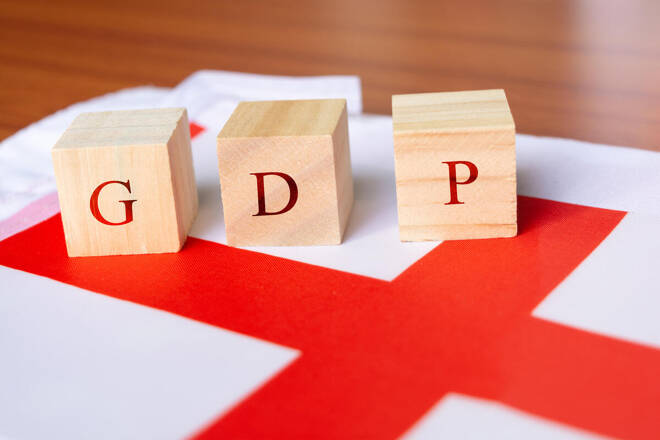Advertisement
Advertisement
UK GDP Report Offered Relief, with the UK Economy Growing by 0.2% in Q2
By:
The UK GDP Report revealed favorable revisions to Q1 numbers. Production and consumer-facing services contributed to growth in Q2.
Highlights
- The UK economy expanded by 0.2% in the second quarter.
- A pickup in production supported growth, with contributions from consumer-facing services.
- The latest figures offered relief, though economic indicators signal a deterioration in the UK economy over the third quarter.
UK GDP
The UK GDP report drew investor interest this morning. Downward revisions to the UK GDP numbers would fuel fears of a deep and prolonged UK economic recession.
The UK economy grew by 0.2% in the second quarter, consistent with the preliminary estimate of 0.2%. In the first quarter, the economy expanded by 0.3%. Year-over-year, the economy grew by 0.6%, up from a prelim 0.4% and 0.2% growth in the first quarter.
According to the Office for National Statistics,
- A 1.2% increase in production contributed to the pickup in economic activity.
- However, the household saving ratio jumped by 9.1% compared with a 7.1% increase in the first quarter. Social benefits, with rising salaries and wages, supported the uptick.
- As a result, household disposable incomes increased by 1.2% after remaining flat in the previous quarter.
- In the second quarter, the UK GDP is 1.8% above pre-COVID-19 pandemic levels.
- While the production sector contributed to growth, the services sector showed no growth in the second quarter.
- However, consumer-facing services grew by 0.9%.
- Household consumption increased by 0.5%, softer than 0.7% in the first quarter.
The second quarter GDP figures will likely offer relief. However, recent UK economic indicators signal a more marked deterioration in the UK economy than previously anticipated.
The negative economic outlook may leave the Bank of England in a holding pattern. Notably, Monetary Policy Committee members will likely want to see the effects of rate hikes wash through the economy before deciding on the next move.
GBP/USD Reaction to the UK GDP Report
Before the UK GDP Report, the GBP/USD fell to a low of $1.21933 before rising to a pre-stat high of 1.22283.
However, in response to the UK GDP Report, the GBP/USD slipped to a post-stat low of $1.22197 before reaching a high of $1.22364.
This morning, the GBP/USD was up 0.31% to $1.22353.
Up Next: The US Personal Income & Overlays
Later today, US inflation and personal spending will likely influence investor sentiment toward the Fed rate path.
Softer-than-forecasted Core PCE Price Index and personal spending figures may ease bets on further Fed rate hikes. However, an upward swing in personal income could signal a positive outlook on consumption.
Economists forecast the Core PCE Price Index to increase by 3.9% year-over-year in August versus 4.2% in July.
Significantly, economists predict personal spending to increase by 0.4% (July: +0.8%) and personal income to rise by 0.4% (July: +0.2%).
About the Author
Bob Masonauthor
With over 28 years of experience in the financial industry, Bob has worked with various global rating agencies and multinational banks. Currently he is covering currencies, commodities, alternative asset classes and global equities, focusing mostly on European and Asian markets.
Advertisement
